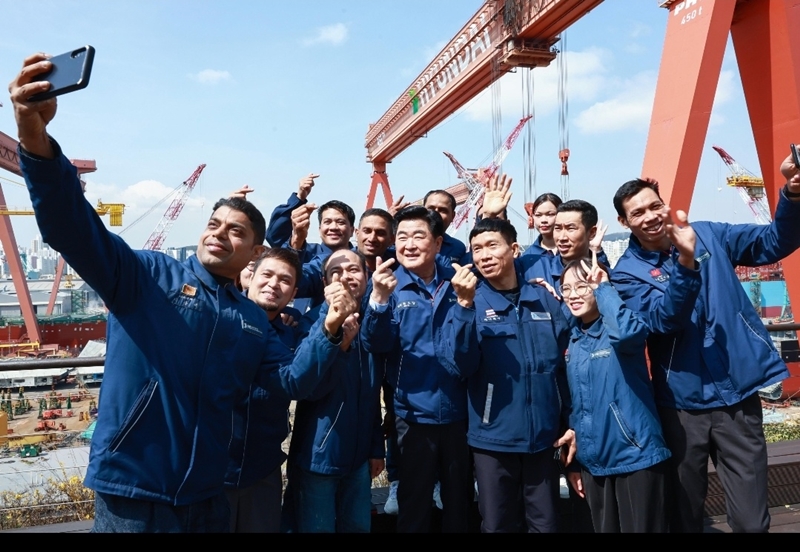- 한국어
- English
- 日本語
- 中文
- العربية
- Español
- Français
- Deutsch
- Pусский
- Tiếng Việt
- Indonesian

The Ministry of Justice this year will issue the E-7-4 visas for 35,000 skilled foreign workers, like those shown at Hyundai Heavy Industries. (Hyundai Heavy Industries)
By Margareth Theresia
The Ministry of Justice this year will issue 35,000 visas for skilled foreign workers and has added four industries that can employ them including cars and construction machinery.
The ministry on Jan. 5 said this in releasing its 2025 report on visa issuance volume, adding that it will launch a system to preannounce such issuance this year.
A combined 35,000 E-7-4 visas this year go to professional and skilled foreign workers, the same number as last year.
For non-professional workers, 74,689 E-8s (seasonal worker), 130,000 E-9s (workers in the Employment Permit System) and 23,300 E-10s (vessel crew) were allotted.
Also this year, a pilot program for the E-7-3 (technician) visa will cover the four new sectors allowed to employ foreign workers: welding and painting in construction machinery manufacturing; molding, welding and painting in automobile parts manufacturing; sheet metal and painting in general automotive repair; and slaughterhouses (only for functional occupations).
The visa issuance cap will be finalized later.
Undergoing pilot operations last year, the E-7-2 (caregiver) will be issued for 400 foreign workers this year, the same as last year, along with 300 E-7-3s each for aircraft parts maker staff and power transmission electricians.
No separate limits will be placed on sectors where skilled personnel are allowed such as the E-1 (professor), E-2 (foreign language conservation teacher), E-3 (researcher), E-4 (technical instructor), E-5 (specialty worker), and E-6 (culture and entertainment) visas.
The preliminary system of visa issuance is designed to set and announce the scale of issuance by analyzing the labor shortage of each visa category and the effect of foreign worker influx to secure quality talent in a timely manner. Intended to manage such an influx more systematically and scientifically, the system is set for full implementation this year after undergoing pilot operations last year.
"Every year, we use scientific analysis to set up the sectors and scale for foreign workers," the ministry said. "We will create a virtuous cycle structure so that the entry of foreign labor boosts the mid- to long-term industrial competitiveness and expands employment nationwide without hurting or worsening working conditions."
margareth@korea.kr